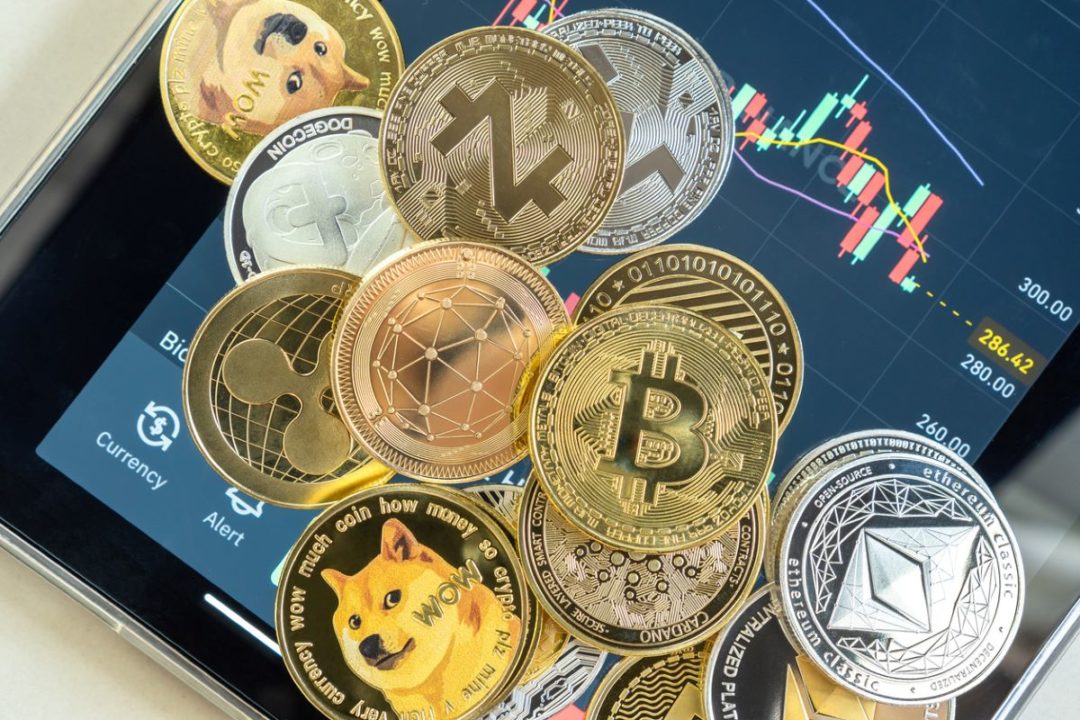
Visit Our Sponsors |
|
|
|
|
|
|
|
|
|
|
|
|
|
|
|
|
|
|
|
|
|
|
|
|
|
|
|
|
|
|
|
|
|
|
|
|
|
|

Image: iStock.com/Chinnapong
A new law that richly rewards corporate whistleblowers could bring an end to the use of cryptocurrencies for money laundering. But if it does, will legitimate holders of crypto be left with anything of value?
At the end of 2022, President Biden signed into law the Anti-Money Laundering Whistleblower Improvement Act. Covering more than two dozen categories of financial transactions, from banks to casinos, AMLA provides fresh incentives and protections to whistleblowers who report illegal dealings to their employers, the Secretary of the Treasury or Attorney General.
Attorney Stephen M. Kohn, a founding partner of Kohn, Kohn & Colapinto LLP, is a longtime expert in whistleblower law, and author of the new book Rules for Whisteblowers. He describes AMLA as a “Dodd-Frank Act for all money laundering and sanctions violations,” referencing the Wall Street reform measure enacted in 2010. Under this new law, individuals from any country receive full confidentiality and anonymity for revealing acts of money laundering, including violations spelled out under the Foreign Corrupt Practices Act of 1977 and Bank Secrecy Act of 1970. But the real incentive for whistleblowers is monetary: they’re now eligible to receive between 10% and 30% of the amount recovered in the action — an award that can number in the millions of dollars. In the recent $200 billion money-laundering case involving the Estonian branch of Dankse Bank, for example, over $2 billion was recovered on behalf of victims of a scheme that converted Russian rubles to dollars.
Examples of illegal acts tied to money laundering include hiding beneficial ownership of businesses behind numbered accounts, false identities or phony foundations. Kohn says such activity is “wildly common,” but believes AMLA “will prove to be the most effective and widespread transnational anti-corruption law” yet enacted.
Among the most popular instruments for illegal financial activity in recent years have been Bitcoin and other cryptocurrencies, transactions of which are largely unregulated and do not pass through traditional financial institutions. Crypto wallets serve as transmission services that were designed in part to elude international regulatory agencies. But Kohn says the U.S. Treasury Department’s Financial Crimes Enforcement Network (FinCEN) is catching up to miscreants, by applying the Know Your Client identity check to activities involving the use of crypto wallets and exchanges. KYC guidelines have long been required of banks before they open accounts, to identify where the money is coming from and confirming that it’s legitimate.
In addition, Kohn says, the Bank Secrecy Act requires that any suspicious transfers of $5,000 or more — including those involving cryptocurrencies — be reported by banks or other transmission services to FinCEN confidentially.
One of the supposed benefits of crypto to criminals lies in its ability to be transmitted beyond the reach of U.S. regulators. But Kohn says many violators are caught when they transfer any portion of ill-gotten funds into accounts that fall under American jurisdiction. In the Dankse case, for example, the bank had no U.S. customers or branches, but nevertheless “permitted dirty money to flow into the American financial system.” In addition, the U.S. maintains a number of arrangements with other countries that allow for access to one another’s account information and the sharing of reward money. (At the conclusion of the Dankse case, the U.S. returned to Denmark $600 million of the $2.1 billion fine.)
Murky as it might seem in practice, the international banking system is far more transparent than the crypto transactions that take place outside it. Accessing crypto wallets “is a whole other game,” says Kohn, but such instruments aren’t wholly immune from regulation. In April of this year, the U.S. Securities and Exchange Commission charged the crypto trading platform Bittrex with operating as an unregistered securities exchange, broker, and clearing agency. Bittrex subsequently filed for bankruptcy protection. And in 2021, BitMEX was fined $100 million for illegally operating a crypto trading platform, as well as for violations of anti-money-laundering laws.
All of which suggests that cryptocurrency isn’t necessarily the safe harbor that money launderers, ransomware attackers and other financial criminals had hoped it to be. But once the nefarious uses of crypto are swept away, what’s left for those who legitimately trade in it? The whole cryptocurrency industry has been under intense pressure in recent months with the collapse of the FTX exchange, and hacking and crashes involving other crypto blockchains and related hedge funds. Meanwhile, SEC has been pursuing issuers of crypto coins and tokens, charging that they are dealing in unregistered securities. And the value of cryptocurrencies continues to seesaw wildly, threatening its ability to serve as a predictable means of exchange in place of traditional fiat currencies.
Kohn is optimistic that the crypto industry will outlive its ties to money laundering and other dirty dealings. “Crypto may not like this today,” he says, “but 10 years from now, I believe they will love it.” Assuming, of course, that Bitcoin and other cryptocurrencies will be worth anything at all by that time.
RELATED CONTENT
RELATED VIDEOS
Timely, incisive articles delivered directly to your inbox.






